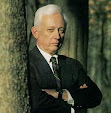https://tinyurl.com/MurrayNYMJCSC
This tiny url will be decoded for you before you open the synonymous link.

https://tinyurl.com/MurrayNYMJCSC
This tiny url will be decoded for you before you open the synonymous link.
"In anything at all, perfection is finally attained not when there is no longer anything to add, but when there is no longer anything to take away..."
-- Antoine de Saint Exupery (Aviator, Mechanic, Poet,
Exemplar), "Wind, Sand and Stars"
“Simplicate and Add Lightness”
-- Design philosophy of Ed Heinemann, Douglas Aircraft
(Also attributed to Igor Sikorsky)
“Make everything as simple as possible, but not simpler.”
-- Albert Einstein
“One should not increase, beyond what is necessary, the number of entities required to explain anything.”
-- William of Occam
Engineers, indeed even philosophers and poets, have a preference for simple designs. They eschew (gratuitous or unnecessary) complexity. One need not point out that IT designers and those who secure those systems have no such preference. Engineers try to do nothing in preference to the wrong thing. They recognize that the greater the complexity of a mechanism the greater the potential for failure. They recognize that the greater the complexity of a mechanism the more difficult it is to know yourself that it is performing correctly or to demonstrate to others that it is doing so.
Simple designs are easier to implement, demonstrate, and maintain. Engineers promote the KISS principle. They call simple designs “elegant.” They recognize that complexity causes errors and masks malice. Engineers manage “parts count” because they know that quality goes up as parts count goes down.
